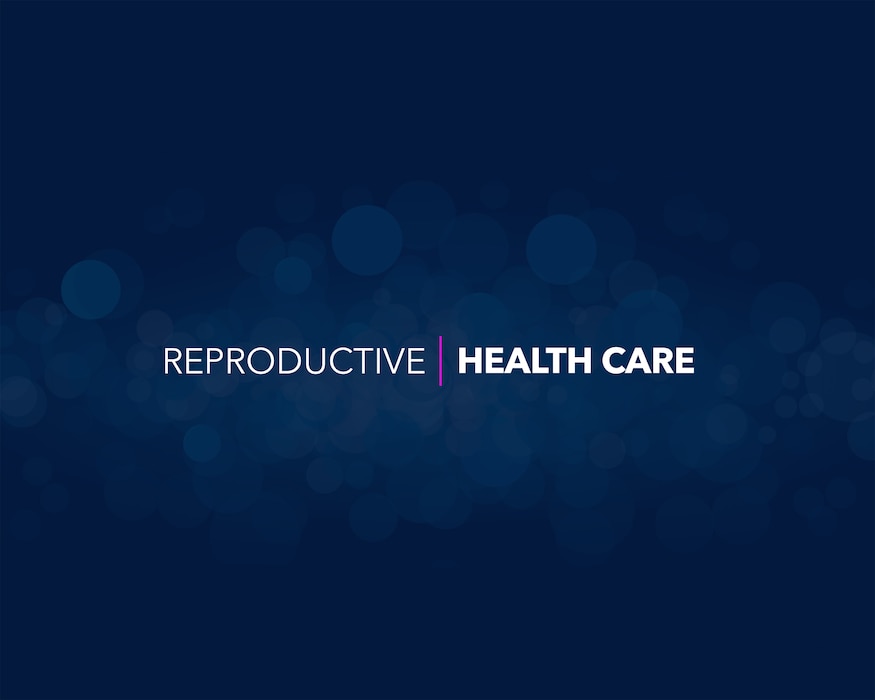Exploring the Realities: What You Need to Find Out About Abortion Care and Reproductive Health And Wellness
Abortion care and reproductive health incorporate important facets of private autonomy and well-being. Recognizing the numerous sorts of abortion, the legal landscape, and access obstacles is vital. These variables influence not just the options readily available yet likewise the support group bordering them. As individuals browse this complicated terrain, the function of healthcare companies becomes significantly significant. What implications do these characteristics have for individual decision-making and social assumptions?
Understanding Abortion: Types and meanings
Abortion, a significant facet of reproductive health and wellness, refers to the discontinuation of a pregnancy prior to the fetus can make it through independently outside the womb. There are two primary sorts of abortion: surgical and medical. Medical abortion entails making use of medicines to cause the discontinuation, typically within the very first trimester. This technique usually consists of 2 medications, mifepristone and misoprostol, which function with each other to finish the pregnancy. Surgical abortion, on the other hand, involves a procedure to physically eliminate the unborn child and placenta from the womb. Numerous surgical methods exist, including suction desire and extension and curettage (D&C), depending on the gestational age. Understanding these types and meanings is vital for individuals looking for reproductive health alternatives, as they influence clinical choices, psychological responses, and individual beliefs surrounding maternity termination. Each method brings distinctive effects for health and wellness, ease of access, and private option, underscoring the intricacy of abortion as a health care solution.
The Lawful Landscape of Abortion Worldwide
The lawful landscape of abortion differs considerably around the world, mirroring diverse cultural, religious, and political influences. In some areas, legislations are modern, enabling wide accessibility to abortion solutions, while others impose stringent restrictions. This variability emphasizes the intricacy of reproductive civil liberties and the continuous discussions surrounding them.
Global Abortion Laws Overview
While social attitudes toward reproductive rights differ substantially, the legal structure surrounding abortion globally mirrors a complicated interplay of cultural, political, and religious impacts. Abortion legislations are identified by a vast spectrum, varying from total bans to unrestricted gain access to. In some nations, abortion is allowed in specific scenarios, such as threats to mother's health and wellness or fetal abnormalities, while others permit it upon request during early maternity. On the other hand, a number of nations impose rigid constraints or criminalize abortion completely, commonly resulting in dangerous treatments. Furthermore, international civils rights frameworks advocate for reproductive rights, influencing legal reforms. In general, the international landscape of abortion laws remains to evolve, shaped by recurring discussions regarding principles, freedom, and public health.
Regional Plan Variations
Regardless of the diverse social contexts, considerable regional variations in abortion policies expose raw contrasts in legal gain access to and social approval. In North America and components of Europe, lots of nations support reproductive civil liberties, enabling access to risk-free abortion services. Conversely, areas such as Latin America and Africa commonly impose rigid restrictions, with some nations prohibiting abortion altogether, even in cases of rape or health and wellness dangers. In Asia, policies differ extensively; countries like Japan permit abortion under particular conditions, while others maintain rigorous prohibitions. These disparities are influenced by aspects such as religious beliefs, political climate, and social attitudes towards females's rights. As a result, accessibility to abortion treatment stays unequal, reflecting wider problems of sex equality and medical care access worldwide.
Access of Abortion Providers: Obstacles and Solutions
Access to abortion solutions stays a contentious issue, as various barriers continue to hamper individuals looking for care. Geographical place typically plays a significant duty; numerous people in rural locations face fars away to clinics, bring about delays and boosted prices. Legal constraints, such as compulsory waiting durations and parental permission laws, further complicate access, particularly for young individuals. Financial restraints also provide a significant difficulty, as insurance policy may not cover abortion solutions, and out-of-pocket expenses can be prohibitive.
To attend to these obstacles, solutions consist of broadening telehealth solutions, which can offer consultations and medicine abortions remotely. Additionally, advocacy for plan modifications targeted at minimizing legal restrictions can improve ease of access. Community-based organizations can play an essential function in giving education and resources, guaranteeing individuals are informed regarding their options. By determining and attending to these barriers, society can pursue a more equitable framework for abortion treatment.
The Duty of Health Care Providers in Abortion Treatment
Doctor play an important duty in guaranteeing efficient and safe abortion treatment, as their competence directly affects client end results and experiences. They are in charge of assessing clients' medical histories, conducting needed evaluations, and supplying proper counseling pertaining to the options readily available. Reliable interaction is important, as it assists to construct depend on and enables clients to make educated decisions regarding their reproductive health.
Healthcare carriers should additionally stay updated on existing standards and methods to provide the highest criterion of treatment. This includes recognizing the various techniques of abortion, potential issues, and post-procedure care. In addition, they play a substantial duty in creating an encouraging setting, resolving any type of mental or psychological concerns patients might have.
Physical and mental Health Implications of Abortion
Abortion can have significant psychological and physical health and wellness implications for individuals, mirroring the complicated interplay between medical treatments and individual experiences. Study indicates that numerous individuals might experience a series of psychological responses post-abortion, including sense of guilt, relief, or despair. These sensations can be influenced by personal ideas, social assistance, and the conditions bordering the choice.
Physically, complications from the treatment are fairly uncommon, however prospective dangers include infection, heavy blood loss, and damages to reproductive body organs. Long-term physical health and wellness results are normally marginal for many individuals.
Accessibility to considerable care, including psychological wellness assistance, is crucial in resolving the varied psychological actions connected with abortion. Comprehending these implications aids individuals make notified decisions and seek ideal treatment. On the whole, identifying the nuanced mental and physical health and wellness influences is necessary for cultivating a supportive atmosphere for those maneuvering abortion experiences.
Contraceptive Choices and Household Preparation
Comprehending contraceptive choices is essential for efficient family planning, visit here as people look for to browse their reproductive options. A selection of contraceptive approaches are available, each with unique systems and performance rates. Hormonal options, such as contraception pills, shots, and spots, job by regulating ovulation and menstruation cycles. Intrauterine gadgets (IUDs) use long-term protection, either non-hormonal or hormone, and can last numerous years. Barrier approaches, including diaphragms and condoms, protect against sperm from reaching the egg and likewise provide protection against sexually transmitted infections. All-natural techniques, such as fertility recognition, count on monitoring ovulation cycles, while irreversible services like sterilization are offered for those that do not want to develop in the future. Individuals must consider their wellness, way of life, and individual preferences when picking an approach, as effective household preparation depends on informed selections that line up with private needs.
Sustaining People With the Reproductive Health Journey
Steering the reproductive wellness trip can be complex, as people deal with a variety of emotions and choices. Assistance systems play a crucial role in assisting people via this diverse experience. Access to accurate info equips individuals to make educated choices concerning their reproductive wellness. Health care carriers, therapists, and community companies can provide vital sources and psychological assistance.
Developing a non-judgmental setting urges open dialogue, permitting individuals to share their worries and preferences. Peer assistance teams can additionally foster a feeling of connection, enabling people to share experiences and dealing methods.

In addition, recognizing the diverse backgrounds and requirements of people is significant in supplying tailored support. Social capability in healthcare assurances that all individuals feel respected and comprehended throughout their reproductive health trip. Inevitably, extensive assistance enhances people' self-confidence in steering their options and promotes a favorable overall experience.
Regularly Asked Inquiries
What Are the Prices Connected With Abortion Treatments?

Exactly How Can Partners Assistance People Taking Into Consideration Abortion?
Partners can support people taking into consideration abortion by proactively paying attention, offering psychological confidence, aiding with logistical arrangements, respecting their decisions, helping with access to sources, and urging open conversations regarding feelings and issues throughout the procedure.

What Prevail Misconceptions About Abortion Care?
Typical false impressions concerning abortion treatment include ideas that it triggers inability to conceive, is always literally harmful, or is a simple procedure without emotional influence. These misconceptions can add to stigma and false information bordering reproductive health and wellness decisions.
How Does Abortion Impact Future Maternities?
Abortion typically does not negatively Read Full Report impact future pregnancies (Reach Reproductive Health). Study shows that many people who have abortions take place to have successful pregnancies later, with minimal problems connected to their previous abortion experiences
What Resources Are Offered for Post-Abortion Treatment?
Post-abortion treatment resources consist of counseling services, clinical follow-ups, support system, and educational hotlines. Doctor, neighborhood organizations, and on the internet systems likewise provide advice and psychological assistance for those going across recovery after an abortion.
Abortion care and reproductive health and wellness include crucial elements of private freedom and health. Abortion, a substantial facet of reproductive health, refers to the termination of a maternity prior to the fetus can make it through separately outside the womb. Access to abortion solutions remains a contentious issue, as various obstacles continue to restrain individuals pop over to these guys seeking treatment. Abortion can have considerable psychological and physical wellness effects for individuals, showing the complicated interaction in between medical treatments and personal experiences. Accessibility to considerable care, including mental health and wellness assistance, is crucial in addressing the varied psychological actions linked with abortion.